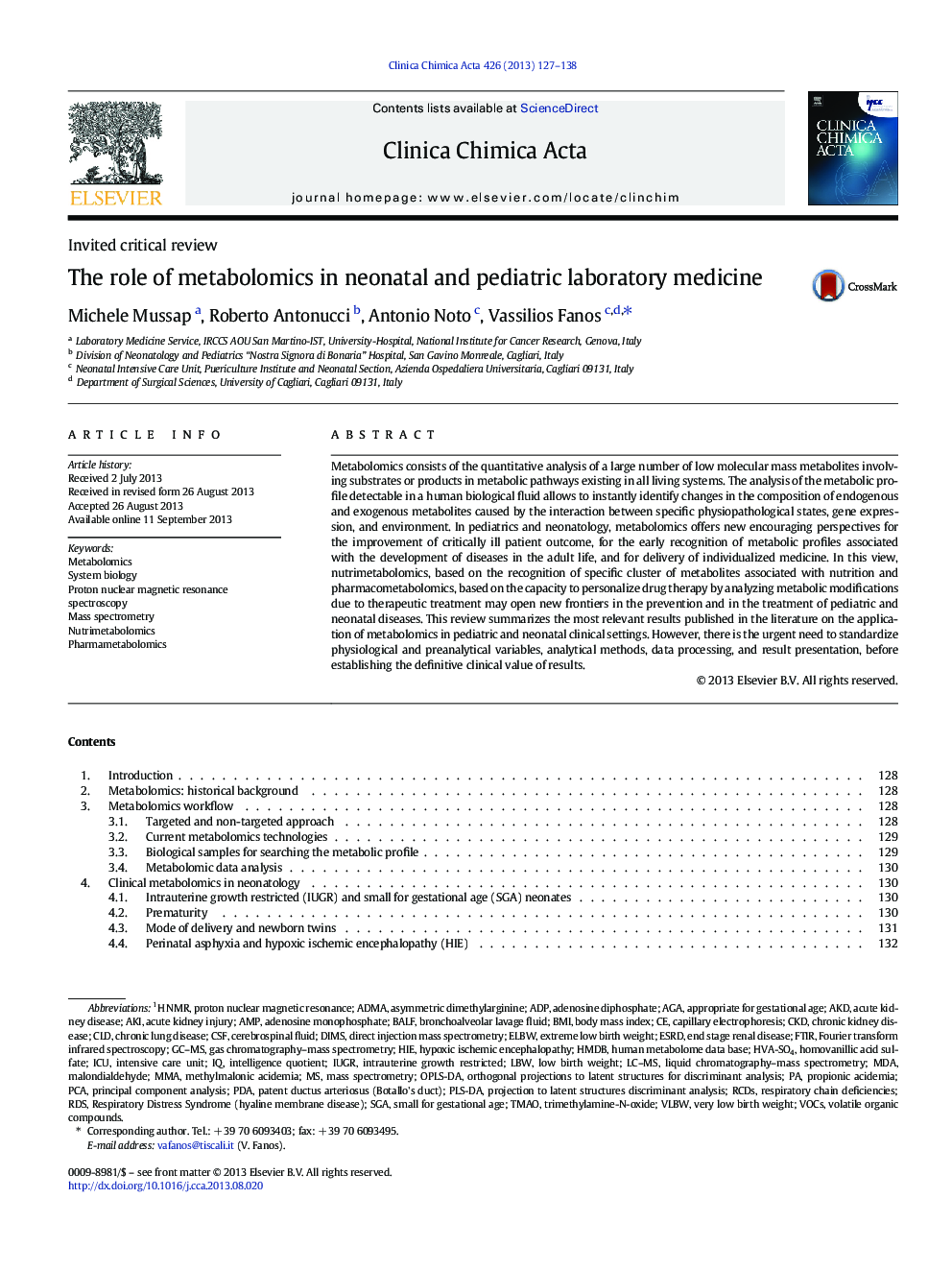| Article ID | Journal | Published Year | Pages | File Type |
|---|---|---|---|---|
| 8312744 | Clinica Chimica Acta | 2013 | 12 Pages |
Abstract
Metabolomics consists of the quantitative analysis of a large number of low molecular mass metabolites involving substrates or products in metabolic pathways existing in all living systems. The analysis of the metabolic profile detectable in a human biological fluid allows to instantly identify changes in the composition of endogenous and exogenous metabolites caused by the interaction between specific physiopathological states, gene expression, and environment. In pediatrics and neonatology, metabolomics offers new encouraging perspectives for the improvement of critically ill patient outcome, for the early recognition of metabolic profiles associated with the development of diseases in the adult life, and for delivery of individualized medicine. In this view, nutrimetabolomics, based on the recognition of specific cluster of metabolites associated with nutrition and pharmacometabolomics, based on the capacity to personalize drug therapy by analyzing metabolic modifications due to therapeutic treatment may open new frontiers in the prevention and in the treatment of pediatric and neonatal diseases. This review summarizes the most relevant results published in the literature on the application of metabolomics in pediatric and neonatal clinical settings. However, there is the urgent need to standardize physiological and preanalytical variables, analytical methods, data processing, and result presentation, before establishing the definitive clinical value of results.
Keywords
AMPHIELBWRDSVLBWELBWMMASGAHMDBOPLS-DATMAOPDAADPCLDADMAIUGRAGAMDADIMSExtreme low birth weightVOCsPLS-DAAKI1H NMRGC–MSLC–MSPCAadenosine diphosphateadenosine monophosphateacute kidney injuryHypoxic ischemic encephalopathypropionic acidemiaMethylmalonic acidemiaCapillary electrophoresisAkdBALFintensive care unitICUintelligence quotientChronic lung diseasechronic kidney diseaseAcute kidney diseaseESRD یا end stage renal diseaseSystem biologyPrincipal component analysisVolatile organic compoundsTrimethylamine-n-oxideSmall for gestational ageasymmetric dimethylargininebody mass indexBMIFTIRliquid chromatography–mass spectrometrygas chromatography–mass spectrometryMass spectrometryproton nuclear magnetic resonance spectroscopyFourier transform infrared spectroscopymalondialdehydeBronchoalveolar lavage fluidCerebrospinal fluidCSFMetabolomicsend stage renal diseaseappropriate for gestational ageCKDVery low birth weightLow birth weightproton nuclear magnetic resonance
Related Topics
Life Sciences
Biochemistry, Genetics and Molecular Biology
Biochemistry
Authors
Michele Mussap, Roberto Antonucci, Antonio Noto, Vassilios Fanos,
